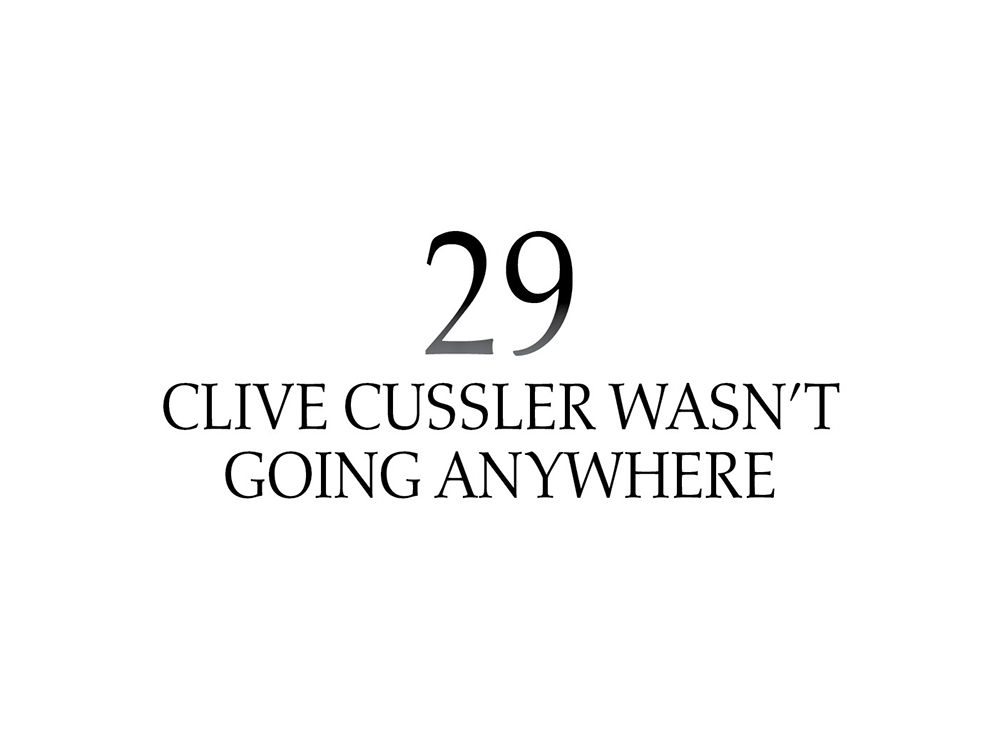
A few months after Clive was fired, Peter Lampack called with exciting news. Pyramid, a paperback publisher, had purchased Catch a Teaser By The Fin for $5,000. With a new title and a cover price of $1.25, The Mediterranean Caper was published in November 1973 and sold a respectable 32,000 copies. More good news followed when Caper was nominated for an Edgar Award by the Mystery Writers of America as one of the five best paperback original novels of 1973. Although he lost out to Will Perry’s The Death of an Informant, the combination of his first published book and the nomination provided Clive with “a much-needed shot in the arm when the skies were gray.”
Clive received another shot in the arm when Dodd Mead bought Hermit Limited for $5,000. When the publisher requested a photograph to be used on the book’s dust jacket, Clive was not about to send them “a retouched ten-year-old photograph of myself, in my study wearing a smoking jacket.”
Shortly after receiving the request, Clive and Barbara had dinner with Richard and his wife, Kate Lentz, who was a talented photographer. She was thrilled when asked to do the shoot and arrived at Clive’s house on Saturday morning. Clive changed into his wetsuit, and they walked over to the golf course that backed up to the Cussler’s house. Much to the astonishment of several nearby foursomes, Clive waded into one of the ponds located between the fairways and struck several poses while Kate shot a roll of film.
Now called Iceberg, the book was published in September 1975 and sold 3,200 copies. Clive’s dedication reads, “This one is for Barbara, whose enduring patience somehow sees me through.” On the dust jacket, Clive emerges from the water like a modern-day Poseidon. Readers never knew the photograph was staged in a four-foot deep water hazard in suburban Denver.
Clive’s modest success provided a boost to his confidence, but it was not good enough for the bean counters at William Morris. Peter Lampack recalls, “It was right around the time when computers were beginning to be utilized, and our entire business was put on line.” The computers determined 90 percent of the company revenue was being generated by 10 percent of their clients. Since computers were very large and very expensive, they were considered infallible and management decided to eliminate the bottom 50 percent of their client base. They were, after all, nothing more than freeloaders.
“My boss told me Clive Cussler wasn’t going anywhere,” Lampack says. “I was wasting my time and the company’s money. It was time to dump him. I said, no way. Not only did I like Clive personally, I had a great deal of faith in his work and knew he’d catch on with the right book. I might have been a little green, but I had what I thought were good instincts.” Fortunately for Clive, Lampack’s track record persuaded management to back down and allow him to continue to represent Clive.